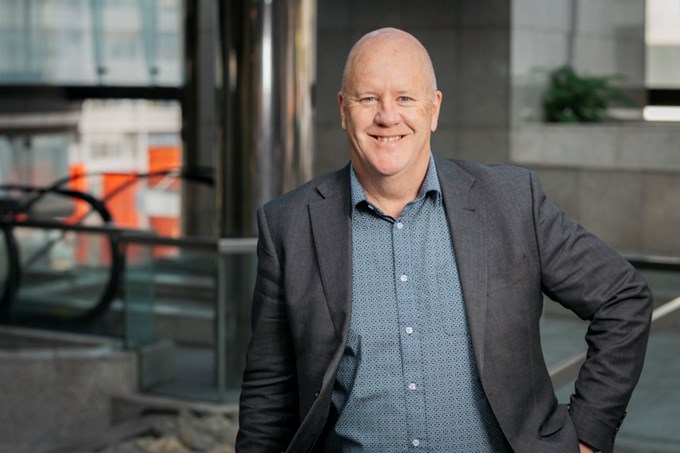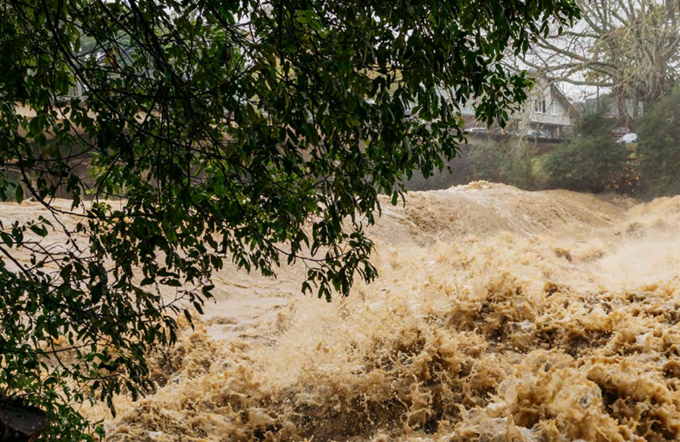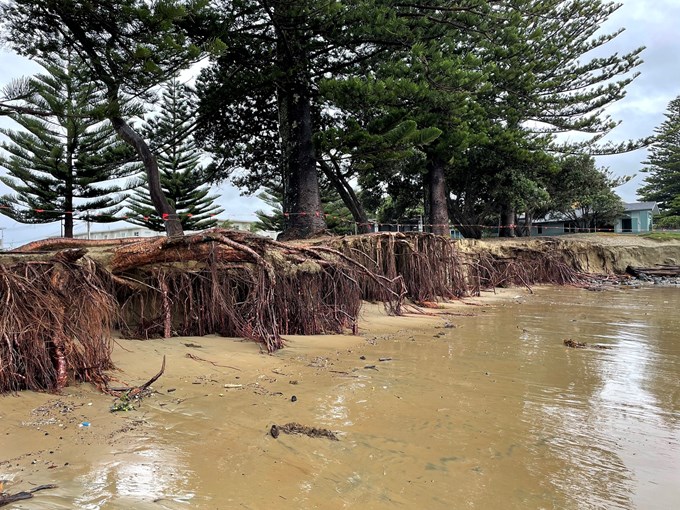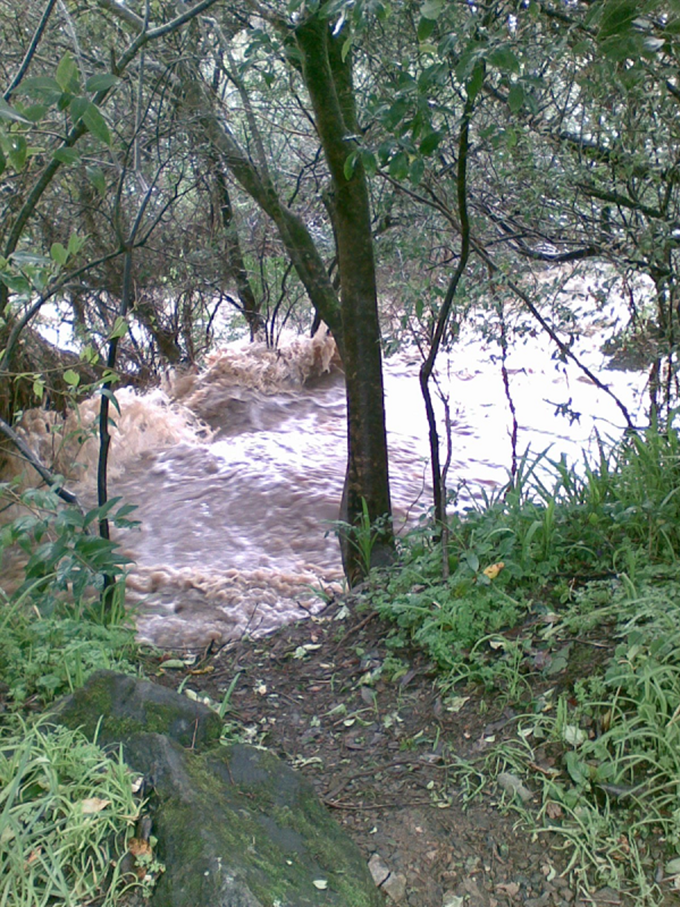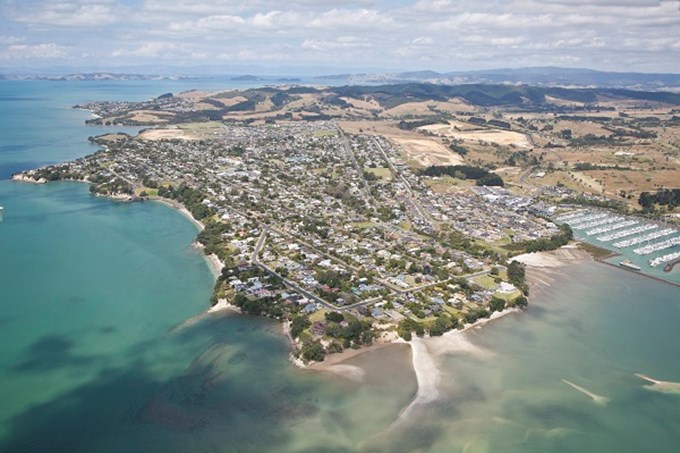“We are better prepared for the risks associated with severe weather events but we can’t absolutely eliminate these risks.”
That’s the message from Auckland Council chief executive Phil Wilson when asked about last year’s storms and the funding proposed to ensure Auckland is better prepared and protected against future events.
|
This Long-term Plan aims to strengthen Auckland’s physical and financial resilience, while tackling big budget challenges. You can view the plan and have your say at akhaveyoursay.nz/ourplan. |
“Our recovery plan to improve Auckland’s resilience after the floods in 2023 set a clear path for action, and this long-term plan currently out for consultation includes more climate-related work over the next 10 years. Thinking strategically means that alongside flood protection and other measures to reduce risks from severe weather events, we need to keep tackling climate change causes,” says Mr Wilson.
So the emission reduction and adaptation goals set for Tāruke-ā-Tāwhiri: Auckland’s Climate Plan back in 2020 are progressively being integrated across the council’s programmes and activities.
Physical resilience to the impacts of climate change is a core part of the council’s asset management plans and is incorporated into both new builds and renewals investment.
This year’s Long-term Plan proposes significant additional investment to specifically reduce flooding and land stability risk.
The Making Space for Water programme proposes more than $1 billion of investment, including government funding, to better protect parts of Auckland vulnerable to flooding from the future severe events that will occur and remain likely to overwhelm the stormwater system in specific places.
Among other things, the programme involves repairing and upgrading the stormwater network and surrounding bridges and culverts to handle sudden increases in water volumes. Making Space for Water also entails creating a ‘blue-green network’ of natural corridors for floodwater to safely move, minimising the impact on homes, roads and other infrastructure while encouraging low carbon design and nature-based solutions that benefit the environment and which are cost effective.
“We need to fund and sustain our response to the climate risks faced by Aucklanders, and I’m pleased this is reflected in Auckland’s draft Long-term Plan.”
The Auckland Future Fund has also been proposed as part of the Long-term Plan consultation to contribute funding and provide more certain revenue for future generations. It could help to mitigate the risks posed by climate change and other major environmental challenges, and manage the council’s increasing insurance premiums.
Through the Long-term Plan, greenhouse gas emissions reduction and increased climate resilience is a part of proposed programmes – particularly those with long-term benefits to enable and maximise long-term cost-savings.
The council will look to accelerate investment that delivers greater resilience against climate and natural hazard risks to communities and council assets.
To achieve our targets, the council will also need to keep taking climate-related action across our activities such as procurement, community facilities, transport, food, waste and use of solar energy systems on council facilities.
“Last year many Aucklanders experienced major damage to homes and businesses, and to local council assets like pools, parks, tracks, roads, the stormwater network – a long list; the money to manage these assets is fixed in our plans and sits with the council and ratepayers to fund them.”
“We need to hear from Aucklanders to understand what matters most to local communities, so we can deliver the most resilient plan for the years ahead,” says Mr Wilson.
The ‘pay more, get more’ scenario includes accelerating the Making Space for Water programme for delivery within six years, if possible, rather than to deliver within 10 years as under the central proposal.
Under the ‘pay less, get less’ scenario there would be reduced investment in the Making Space for Water programme. This would mean the council would focus on maintenance works only, providing less resilience against flooding and not taking full advantage of the government’s $380 million co-funding.
Auckland’s Climate Action Timeline
- June 2019 – Auckland Council declared a climate emergency in response to the call for climate action from the community and committed to incorporate climate change considerations into work programmes, investments, and decisions – noting that climate impacts for Auckland were expected to worsen in the coming decades.
- Early 2020 – Auckland experienced a record-breaking drought.
- July 2020 – the council adopted Te Tāruke-ā-Tāwhiri: Auckland’s Climate Plan in partnership with mana whenua to reduce emissions and adapt to the impacts of climate change.
- Early 2023 – Auckland experienced its most extreme flooding on record and an ex-tropical cyclone within two weeks.
- April 2023 – Auckland Council appointed a Group Recovery Manager in response to the January floods and Cyclone Gabrielle.
- July 2023 – the mayor announced the Making Space for Water programme, signalled in May 2023 to address flood resilience.
- December 2023 – the council adopted Te Mahere Whakaora mō Tāmaki Makaurau Tāmaki Makaurau Recovery Plan, published in January 2024.
- By 2030 – the Auckland Council Group (Auckland Council and it’s CCOs, excluding Port of Auckland) has committed to a 50 per cent reduction in operational greenhouse gas (GHG) emissions compared to those in 2019.
- By 2050 – the Auckland Council Group including Port of Auckland has committed to net-zero GHG emissions.

